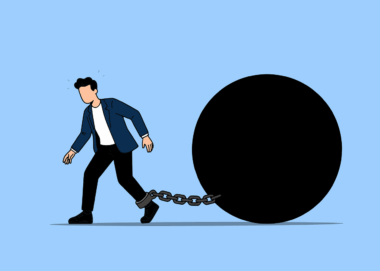How to Prepare Your Finances Before Contacting a Debt Relief Company
Before reaching out to a debt relief company, it’s crucial to take a comprehensive look at your financial landscape. Begin by collecting all relevant financial documents, such as pay stubs, bank statements, and bills. Documenting your monthly income and expenses will help create an accurate picture of your financial situation. These records will provide necessary evidence when discussing your options with the company. Moreover, you should categorize your debts into secured and unsecured, listing amounts owed, interest rates, and terms. Make sure you understand the details of each debt. By gaining clarity about your position, you are more likely to ask informative questions. Additionally, check your credit score, as many relief companies will review this score before offering services. A higher score can improve your negotiations. Keep in mind, staying organized and informed will empower you in discussions to follow. By preparing your documentation and understanding your financial situation, you position yourself favorably. This preparation can aid in smoothing the process when interacting with potential debt relief solutions.
Next, it’s important to set clear financial goals prior to engaging with a debt relief company. Take some time to reflect on what you want to achieve through debt relief. Do you aspire to lower monthly payments, reduce interest rates, or eliminate debt entirely? Consider making a list of specific objectives, outlining how much you can realistically contribute monthly. These goals will help guide your conversations with the representatives from the debt relief firm. Furthermore, be mindful of the long-term implications attached to different debt relief strategies. Understanding various options, such as debt consolidation or negotiation, can affect your credit standing and future borrowing capacity. If you have specific deadlines for achieving debt-free status, make these known during your initial discussions. Communicating timelines can result in tailored strategies to meet your needs effectively. This focus on directed efforts can lead to better engagement with the company. Moreover, not all debt relief companies operate on the same terms; diverse solutions might affect your finances differently. Therefore, setting these goals can help ensure that the chosen solution aligns with your financial outlook.
Researching Debt Relief Companies
Once you are prepared with financial documents and clear goals, it’s time to research potential debt relief companies. Check their reputation by reading online reviews and customer testimonials. Be vigilant for red flags, such as complaints regarding unethical practices or high fees. Websites that offer insights into consumer ratings and reviews can be beneficial. Scrutinize the longevity and experience in the industry of these companies as well. Read about their methods of debt relief and confirm that these methods align with your goals. Inquire whether they are accredited by reputable organizations to ensure responsible practices. Furthermore, assess whether the company discloses all fees and costs up front. Understanding the financial obligations associated with the service is paramount. Lastly, consider reaching out to previous customers to gather insights about their experiences. By dedicating time to research, you enable yourself to make informed choices for your future. Selecting an ethical and suitable debt relief company can be pivotal in regaining financial stability and making a successful recovery.
As you delve deeper into your research, be sure to consider the potential costs associated with hiring a debt relief company. Different firms have varying fee structures, which can impact your financial situation. Some companies may charge a percentage of your enrolled debt, while others may operate on a flat fee basis. Understanding these costs upfront allows you to budget appropriately and avoid unexpected financial strain. Moreover, inquire about any additional fees such as setup fees or monthly maintenance charges. Transparency in fee disclosures can significantly enhance trust in the company you choose. Also, determine how long it will take to see results from their services. A trustworthy company should provide a clear timeline of when you can expect to start observing changes in your financial landscape. As you evaluate these costs, compare them with potential savings to assess value effectively. Ensure that what’s being offered aligns with your financial goals. This diligence will ultimately empower you to make sound decisions concerning your economic recovery while minimizing unnecessary expenditures.
Preparing for the Initial Consultation
Preparing for your initial consultation with a debt relief company is a pivotal step in this journey. Before attending the meeting, it’s essential to note any questions or concerns that come to mind. These inquiries could relate to the company’s processes, fee structures, or potential outcomes. Creating a list ensures you don’t overlook anything during discussions. During the consultation, be open and honest about your financial situation so that the advisor can provide tailored solutions. Remember that the more information you share, the easier it will be for them to assist you effectively. It’s also wise to take notes; this can help you retain critical information and refer back to it later. Additionally, consider whether online consultations may be an option for convenience. Before making a decision on which company to work with, assess how comfortable you felt during the initial meeting. Trust and rapport with your advisor are important traits, as they will guide you through an emotionally charged process. A supportive and transparent atmosphere can ease anxiety significantly for those facing debt challenges.
After the initial consultation and before committing to any solutions, take time to reflect on the information presented to you. Evaluate the proposed strategies carefully, weighing potential benefits against risks. Make sure that any solution suggested aligns with your financial goals and that you fully understand how it works. It can be useful to consult with trusted friends or family for their perspectives or even seek a second opinion from a different debt relief provider. This helps to further clarify your options and safeguard against poor decisions. Additionally, verify that the company offers ongoing support throughout your debt relief journey. You want reassurance that you’re not alone during this process. Examine how responsive they are to your post-consultation queries. Their willingness to support and guide you throughout the process impacts your success in overcoming debt issues. Once you’ve completed your evaluation and the opportunity to consult with others, go ahead and make an informed decision regarding the best path forward. Taking these careful steps can set a solid foundation toward your financial recovery.
Final Thoughts on Financial Preparation
The journey of achieving financial freedom is not solely about choosing the right debt relief company; it also involves thorough preparation. The steps you’ve taken to organize your finances, set goals, and research companies are foundational. Engage actively in discussions, communicate openly, and never hesitate to ask questions; this proactive approach can significantly lessen your financial burden. Consider following up after your initial consultation to clarify any lingering doubts. Staying engaged and informed will empower you to make the most out of the services offered. Be prepared for challenges along the way; debt relief can sometimes require patience and continuous effort. Your commitment to understanding your financial obligations and advocating for yourself alongside the debt relief company is critical. Occasionally reassess your goals as your situation evolves to ensure your ongoing alignment with them. Ultimately, by dedicating yourself to thoughtful preparation and informed decision-making, you ultimately pave the way toward sustainable financial health and success in overcoming your debt challenges.
Understanding Yourself and Your Financial Needs
The journey towards financial independence begins with self-awareness and an understanding of your specific needs. Assess what led you into debt; this reflection can provide insights that help avoid repeating the same mistakes. Analyze your spending habits, distinguishing between needs and wants, and reflect on how your financial choices affect your overall well-being. Emphasizing this awareness can facilitate more informed decisions about the debt relief process as well. Self-evaluation also includes recognizing emotional ties you might have with money and how they affect your financial habits. Sometimes, emotional spending can lead to debt and financial strain. Take actionable steps to identify triggers that affect your spending patterns. Whether that means setting budgets or exploring alternatives to impulse purchases, these practices can contribute to improved financial responsibility. Knowing your unique circumstances allows you to communicate effectively when you begin discussing potential debt relief solutions. This self-awareness will not just help you establish a better relationship with money but also play a vital role in determining what debt relief strategies will work best for you in the long term.





